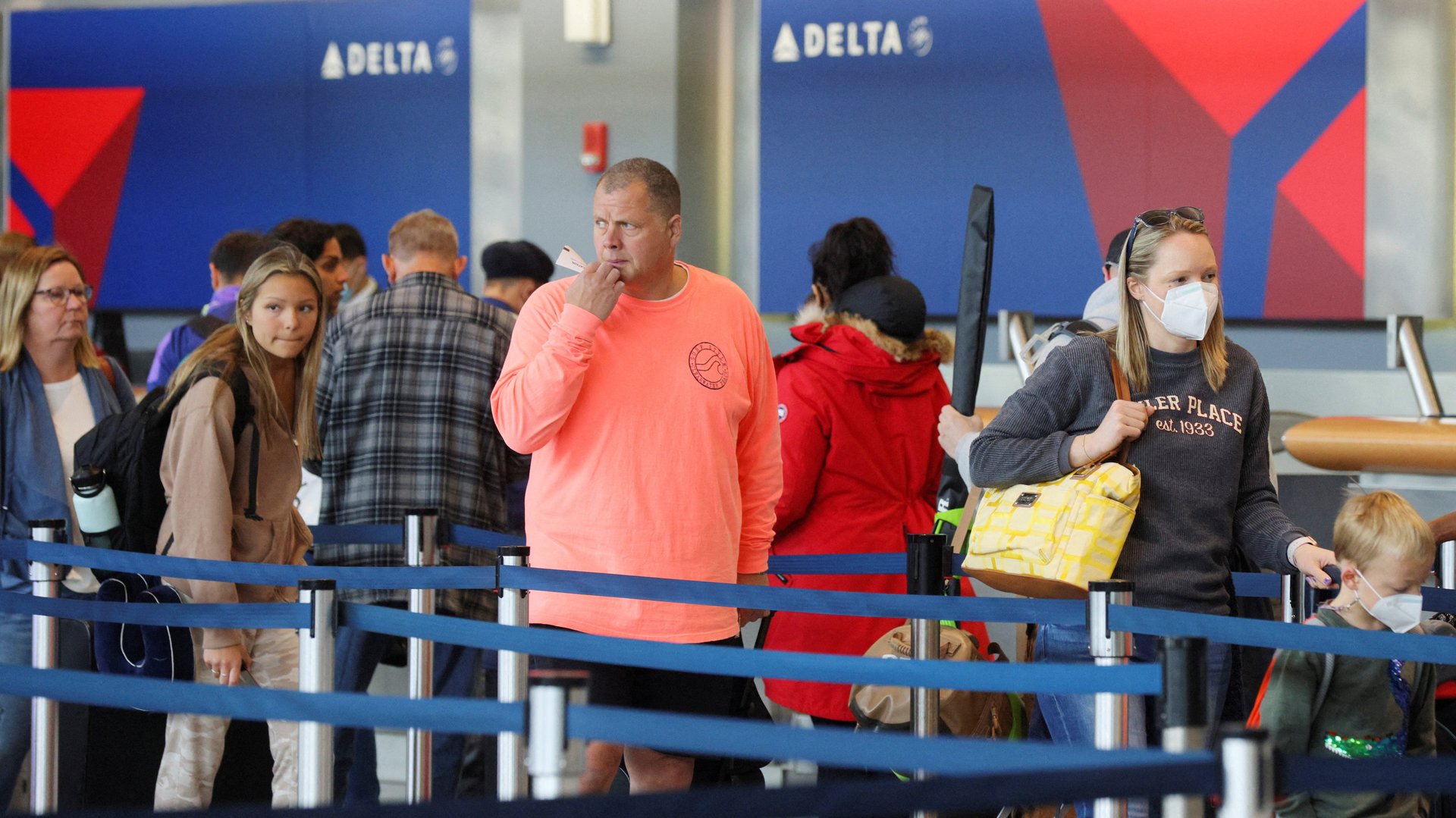Mask or no mask, the FAA will still fine unruly airplane passengers
Travelers at airports across the US dropped their masks this week after a judge overturned the federal transportation mandate, prompting major airlines to lift their requirements.


Travelers at airports across the US dropped their masks this week after a judge overturned the federal transportation mandate, prompting major airlines to lift their requirements.
But just because the mandate is lifted doesn’t mean passengers are off the hook for bad behavior, the Federal Aviation Administration (FAA) said. The agency announced yesterday (April 20) it’s enshrining a zero-tolerance policy against unruly passengers put in place after the Jan. 6 attacks on the US Capitol. Under the policy the FAA can fine unruly passengers immediately rather than taking intermediate steps, such as warning letters or counseling.
“Behaving dangerously on a plane will cost you; that’s a promise,” said acting FAA administrator Billy Nolen.
Investigations into unruly passengers reached all-time high
The FAA received nearly 6,000 reports of unruly passengers on flights last year, with the majority of incidents related to face masks, and initiated a record number of investigations. As of February the agency said it had referred 80 of these cases to the FBI for potential criminal prosecution.
The agency has opened 370 investigations into unruly passengers so far this year, still higher than any year prior to 2021.
Such incidents have continued this week, even with the lifting of mask mandates. A passenger on an American Airlines flight scheduled to go from Buffalo to Chicago was arrested yesterday after opening the boarding door and deploying the emergency slide while the plane was on the tarmac.
Airlines are rethinking no-fly lists
While the Department of Justice is appealing the federal ruling lifting the transportation mask mandate, some airlines are ready to forgive passengers who previously broke the rules. Delta, United, and Alaska airlines all said they’re reviewing lists of passengers who had been banned over the mask mandate, and may let thousands of these customers fly again.
Meanwhile, a bipartisan group of US lawmakers introduced legislation earlier this month that would create a “no-fly” list barring unruly passengers in response to the rise in violent incidents on airplanes.